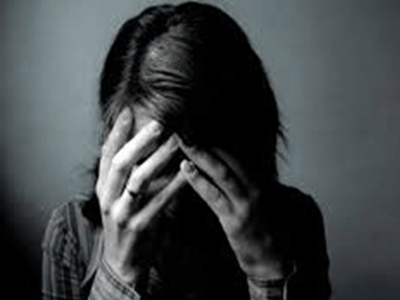Postnatal depression is a type of depression that many parents experience after having a baby.
It's a common problem, affecting more than 1 in every 10 women within a year of giving birth. It can also affect fathers and partners, although this is less common.
It's important to seek help as soon as possible if you think you might be depressed, as your symptoms could last months or get worse and have a significant impact on you, your baby and your family.
With the right support, which can include self-help strategies and therapy, most women make a full recovery.
Symptoms :
Many women feel a bit down, tearful or anxious in the first week after giving birth. If your symptoms last longer or start later, you could have postnatal depression. Postnatal depression can start any time in the first year after giving birth.
Signs that you or someone you know might be depressed include:
- A persistent feeling of sadness and low mood
- lack of enjoyment and loss of interest in the wider world
- lack of energy and feeling tired all the time
- trouble sleeping at night and feeling sleepy during the day
- difficulty bonding with your baby
- withdrawing from contact with other people
- problems concentrating and making decisions
- frightening thoughts – for example, about hurting your baby
- loss of interest in the world around you and no longer enjoying things that used to give you pleasure
- feeling that you're unable to look after your baby
- problems concentrating and making decisions
- loss of appetite or an increased appetite (comfort eating)
- feeling agitated, irritable or very apathetic (you "can't be bothered")
- feelings of guilt, hopelessness and self-blame
- difficulty bonding with your baby with a feeling of indifference and no sense of enjoyment in his or her company
- frightening thoughts – for example, about hurting your baby; these can be scary, but they're very rarely acted upon
- thinking about suicide and self-harm
Many women don't realize they have postnatal depression, because it can develop gradually.
Spotting the signs in others:
Postnatal depression can develop gradually and it can be hard to recognize. Some parents may avoid talking to family and friends about how they’re feeling because they worry they’ll be judged for not coping or not appearing happy.
Signs for partners, family and friends to look out for in new parents include:
- frequently crying for no obvious reason
- having difficulty bonding with their baby, looking after them only as a duty and not wanting to play with them
- withdrawing from contact with other people
- speaking negatively all the time and claiming that they're hopeless
- neglecting themselves, such as not washing or changing their clothes
- losing all sense of time, such as being unaware whether 10 minutes or two hours have passed
- losing their sense of humor
- constantly worrying that something is wrong with their baby, regardless of reassurance
causes :
The cause of postnatal depression isn't completely clear. Some of the factors it has been associated with include:
- a history of mental health problems, particularly depression, earlier in life
- a history of mental health problems during pregnancy
- having no close family or friends to support you
- a poor relationship with your partner
- recent stressful life events, such as a bereavement
- experiencing the "baby blues"
Even if you don't have any of these symptoms, having a baby is a life-changing event that can sometimes trigger depression.
It often takes time to adapt to becoming a new parent. Looking after a small baby can be stressful and exhausting.

